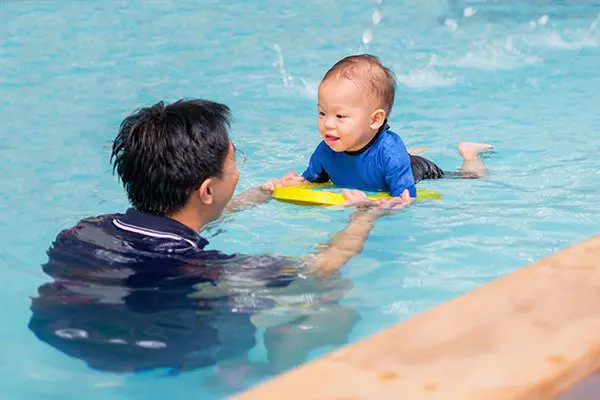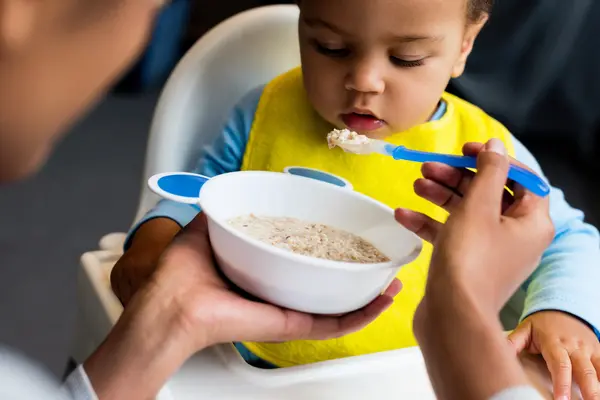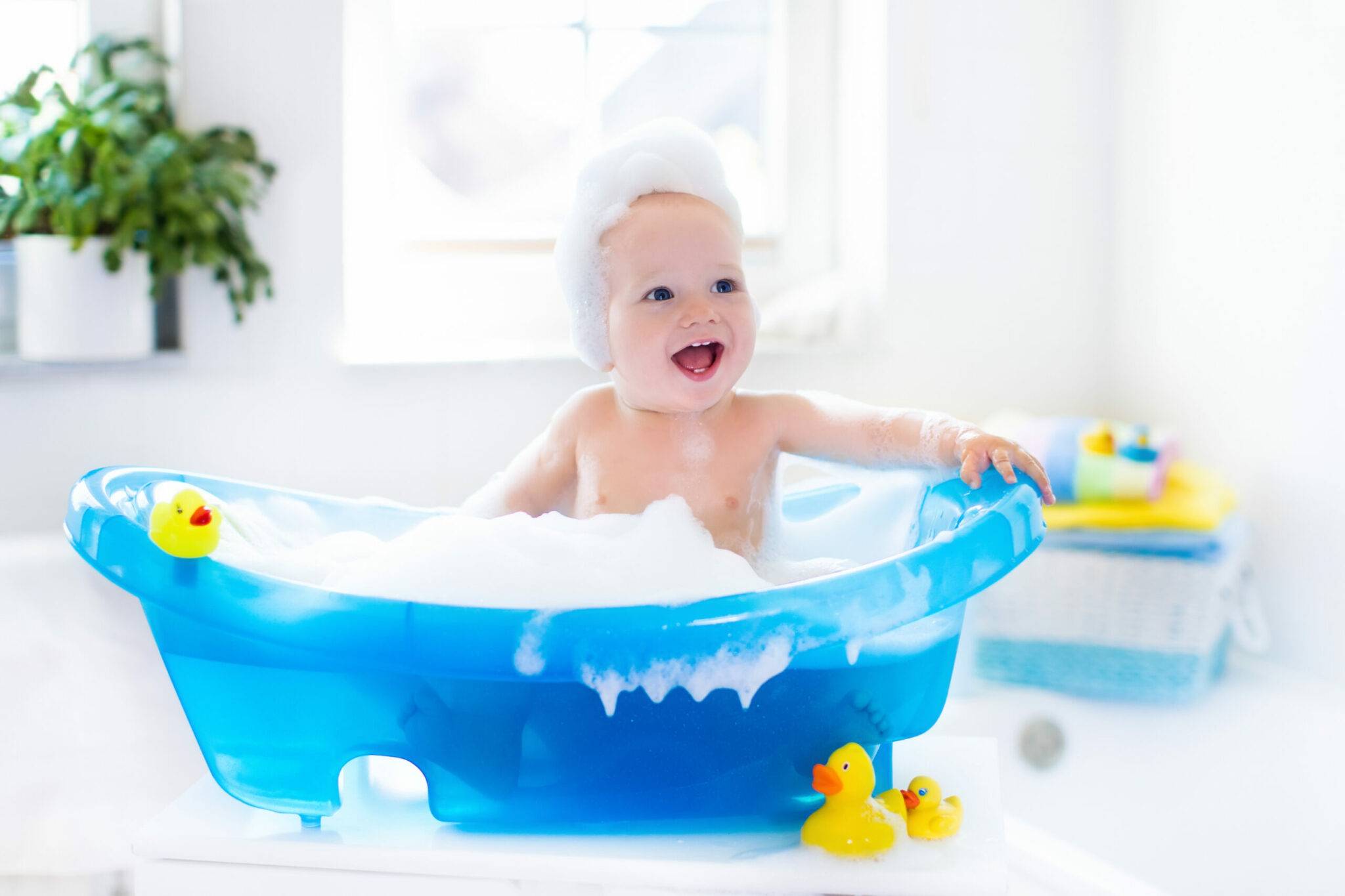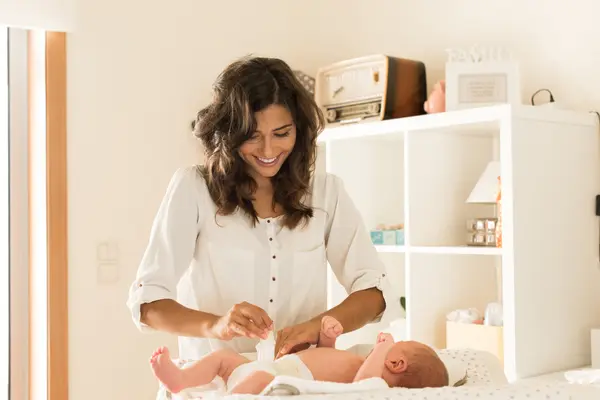Knowing how to keep your baby safe in and around the pool will make your time in the sun more fun and less stressful. Infant swim classes can be a great way to introduce your little one to the world of water. Classes also provide helpful information about water safety and drowning prevention. Consider these tips when deciding when looking for infant swim classes.
Common Questions About Infant Swim Classes
When should my baby learn to swim?
Children develop at their own pace. Knowing your baby’s abilities and comfort level in the water is important when deciding if they’re ready for lessons. According to the American Academy of Pediatrics, many children start lessons at age 1. While they don’t recommend formal swim classes for babies since there is no evidence proving it lowers the risk of drowning, parent-child swim classes are still a great way to help your little one get used to the water. These classes also provide information for parents on water safety that could be helpful in case of an emergency.
What should my baby learn at swim class?
Although your little one won’t be Michael Phelps in the pool just yet, infant swim lessons teach key survival skills and safety information that could save your baby from drowning. The CDC states there are around 3,536 unintentional drownings annually in the United States, with about one in five being children 14 and younger. A swim class teaching your baby the basic concept of floating on their back could be life-saving if they are ever put into a dangerous situation.
What are the benefits of infant swim classes?
The possibility of reducing the risk of drowning is the most important benefit of swim classes. But, there are other benefits that may come from them outside the pool. A study by Griffith University suggested that children who swam were ahead of the normal population when it came to cognitive skills, problem-solving in mathematics, counting, language, and following instructions. Swim classes can also help your baby build muscle, improve their sleep, and improve their appetite.
What To Consider When Choosing Swim Lessons
- Look for instructors who are experienced and qualified. Someone trained to work with the age and skill level of your baby will more than likely give the best results. If you’re planning to enroll your little one in group classes, make sure the other kids in the class are around the same age and skill level as well.
- Check it out first. Find a class that will let you watch and determine if it’s the best fit for your child. You want to make sure your child is in a class where they’re not spending time waiting for their turn and are getting the one-on-one attention they need. It’s also good to see how the instructor interacts with the children.
- Survival first, swim second. Classes that teach survival skills first are highly recommended. It’s important for your baby to know how to roll over and float on their back in case of an emergency. Their safety is the main reason you’re looking for a class. Make sure that’s a priority when making your decision.
Whether your little one is ready to dive into swim lessons or not, keeping them safe in and near the water this summer is important. Check out more helpful tips for keeping your baby safe at the pool here.





